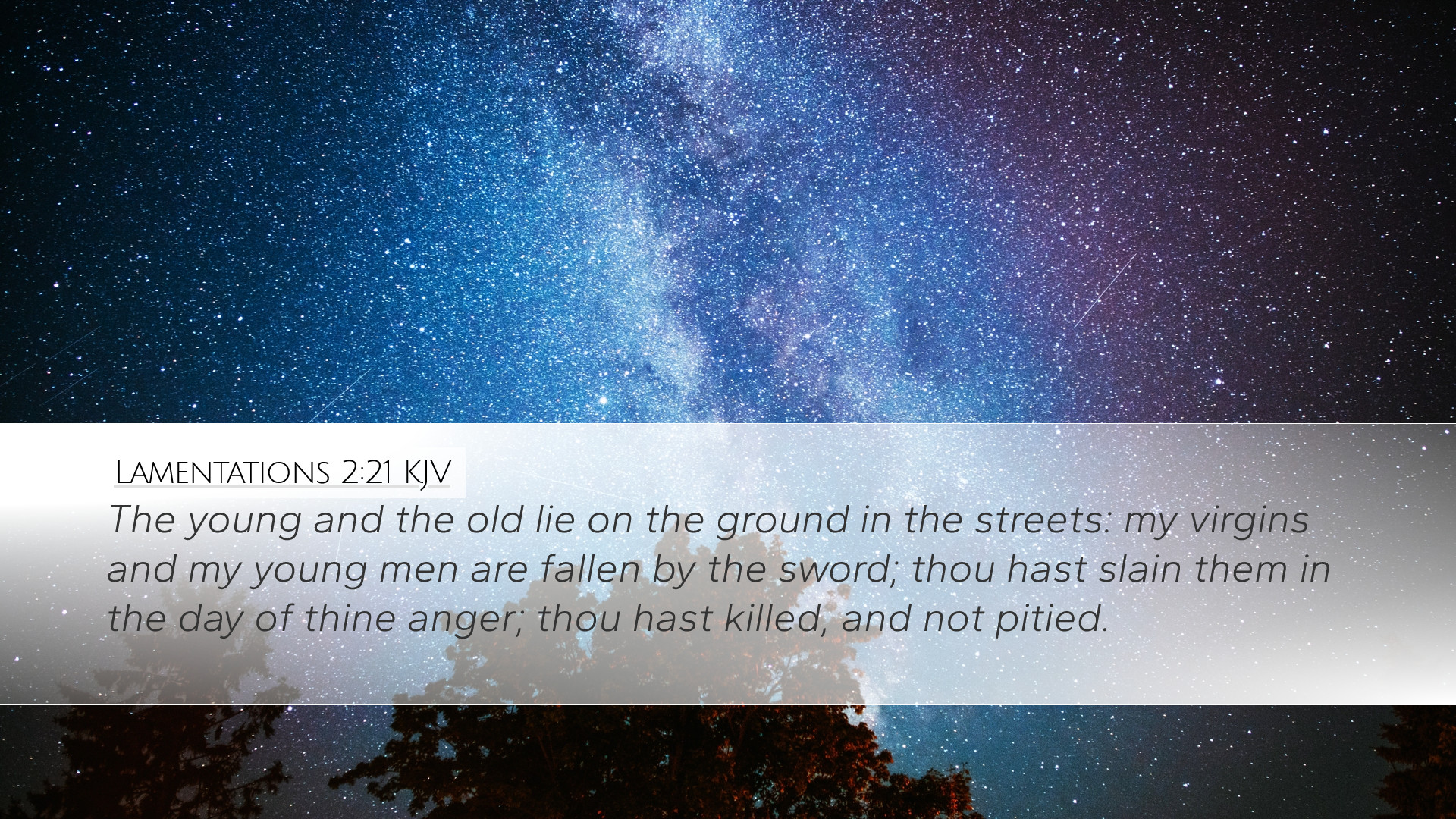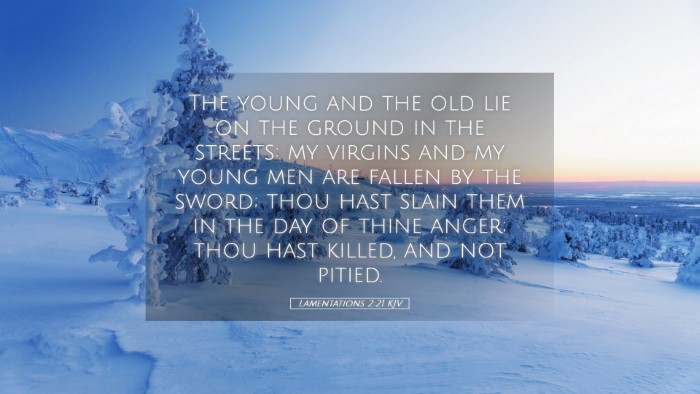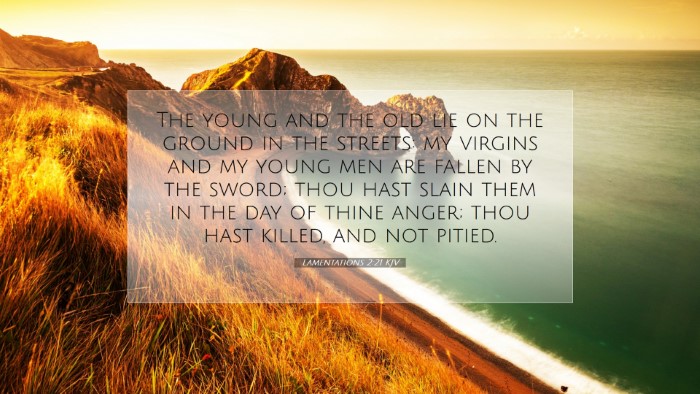Lamentations 2:21 Commentary
"Lamentations 2:21": "The elders of the daughter of Zion sit upon the ground, and keep silence: they have cast up dust upon their heads; they have girded themselves with sackcloth; the virgins of Jerusalem hang down their heads to the ground."
This verse encapsulates a profound moment of mourning and despair in Jerusalem following the destruction brought upon by the Babylonian siege. The vivid imagery presented by the author of Lamentations serves to emphasize the overwhelming sorrow experienced by the people of Zion.
Contextual Overview
The Book of Lamentations is attributed to the prophet Jeremiah, who mourned the destruction of Jerusalem and the subsequent exile of its inhabitants. This chapter specifically addresses the communal lament of the city as it reflects on the grief of a once-thriving metropolis now turned desolate.
Insights from Public Domain Commentaries
Matthew Henry's Commentary
Matthew Henry notes that the actions described result from deep grief and is a representation of the elders of Zion reflecting on their desolation. He highlights the symbolism of sitting on the ground — a traditional posture of mourning in ancient cultures. The elders, symbols of wisdom and authority, display their brokenness, illustrating how calamity has stripped them of dignity.
Henry emphasizes the necessity of silence in mourning. The elders' silence signifies the enormity of their grief; they have no words that could adequately express their loss. Their actions, such as casting dust upon their heads and donning sackcloth, are cultural expressions of sorrow, following historical practices observed in times of crisis.
Albert Barnes' Notes on the Bible
Albert Barnes provides a detailed analysis of the specific actions described in this verse. He identifies that the "casting up dust" is a common practice among the Israelites during times of mourning. This act represents a physical acknowledgment of their grief and humility before God.
Barnes also points to the significance of the "virgins of Jerusalem" as they hang their heads. This imagery suggests a collective humiliation and shame that the people of Jerusalem felt due to their sin and the resultant punishment. It highlights the innocence of the young women juxtaposed with the devastation that has befallen them, underlining the emotional weight of the loss experienced by the community.
Adam Clarke's Commentary
Adam Clarke elaborates on the symbolic elements in this verse, particularly focusing on the implications of sackcloth and ashes. He interprets these elements not merely as signs of mourning but as expressions of repentance and humility before God. Clarke points out that such acts during calamity served to invite divine forgiveness, indicating the people's recognition of their transgressions against God.
Furthermore, Clarke draws attention to the societal implications of this mourning. The imagery presented not only reveals individual grief but signifies a communal impact where each member of society partakes in the sorrow. The pouring out of emotions through such physical expressions demonstrates the collective character of despair faced by the city.
Theological Implications
Theologically, Lamentations 2:21 serves as a powerful reminder of the consequences of sin and the necessity of repentance. It reflects the overarching theme of divine judgment intermixed with mercy, as the people grapple with the realities of their national sin and seek to restore their relationship with God.
This verse can challenge pastors and theologians today to consider how communities express lament and grief. It raises essential questions about how collective sorrow can lead to spiritual renewal and transformation, urging modern congregations to foster environments where authentic expressions of grief can occur.
Conclusion
In summary, Lamentations 2:21 is rich in emotional and spiritual depth. The profound sorrow depicted through the actions of the elders and virgins of Jerusalem invites readers to ponder both the weight of sin and the hope of restoration through genuine repentance. As such, this verse is not only a historical reflection of a broken community but serves as an enduring reminder of the importance of humility and mourning in the Christian journey.


